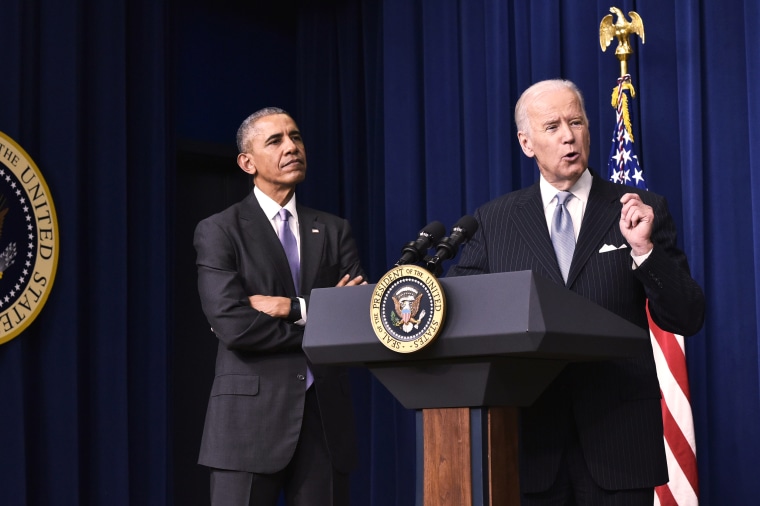WASHINGTON — More than a decade ago, when then-President Barack Obama was weighing what to do as the U.S. neared the debt ceiling, a small but critical office within the Justice Department weighed in with some key legal advice.
The Justice Department's Office of Legal Counsel (OLC), sometimes referred to as "the president's law firm," advised Obama on whether the 14th Amendment gave the president permission to unilaterally raise the borrowing limit of the United States, bypassing the problem. The amendment states that the “validity of the public debt of the United States, authorized by law, including debts incurred for payments of pensions and bounties for services in suppressing insurrection or rebellion, shall not be questioned."
But the office's opinions on the matter never became public. The still-secret views of an office that doles out legal advice to the executive branch may take on new relevance as President Joe Biden's administration faces another debt ceiling showdown.
Responding to Freedom of Information Act requests — in 2011 and again in 2013 — OLC declined to make its written opinions on the 14th Amendment question public. In 2011, the office wrote that four relevant OLC documents were “protected by the deliberative process, the attorney client, and the presidential communications privileges.” In 2013, OLC said, there were five documents, also “protected by the deliberative process, attorney-client, and presidential communications privileges" and none were "appropriate for discretionary release.” A public list of OLC opinions includes a redacted entry from 2011 and a number of redacted entries from both 2012 and 2013.
A spokeswoman for OLC declined to comment Tuesday.
Ultimately, the Obama administration ruled the 14th Amendment out. Former White House spokesman Jay Carney, in late 2012, said the administration “does not believe that the 14th Amendment gives the President the power to ignore the debt ceiling — period.” Obama, in early 2013, took it off the table.
Biden — who was, of course, vice president during previous debt ceiling showdowns — told MSNBC host Stephanie Ruhle last week that he had not "gotten there yet" on invoking the 14th Amendment. This week, in an interview with ABC News, Treasury Secretary Janet Yellen said invoking the 14th Amendment could spark a “constitutional crisis.”
Last month, former Treasury Secretary Jack Lew said in an interview that trying to come up with a legal theory that a court would see as legitimate was "just a risky thing" to do.
"The debate over the 14th Amendment has gone on, you know, for a number of years. I think you got to go back to the history. It was written to pay Union debts and to treat Confederate debts not as Union debts. It was not meant to be a broad grant of power," Lew said. "Somebody could challenge the legitimacy of the action. And again, we’re the reserve currency of the world. Full faith and credit is unquestioned. If you put it into question, I think it’s risky to the whole enterprise, which affects our economic and national security."
Lew also said that the "platinum coin" option — the idea that the president could simply order production of a trillion-dollar coin and use it to pay down debt, which OLC also considered — was very risky.
"I don’t think, you know, the solution is for us to kind of pretend that there are easy things like a magical coin that solves the problem," Lew said. "I always believed that any of the ideas that were kind of fringe ideas were very risky. I’m not going to say with absolute certainty what you can and can’t do. I wouldn’t recommend taking those risks."

